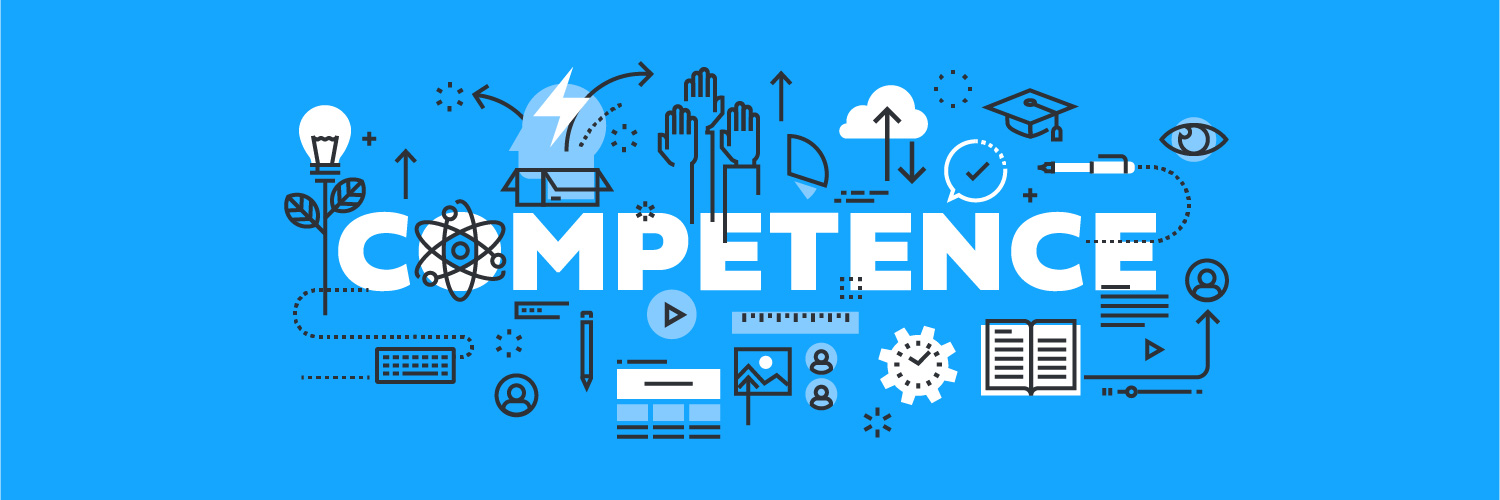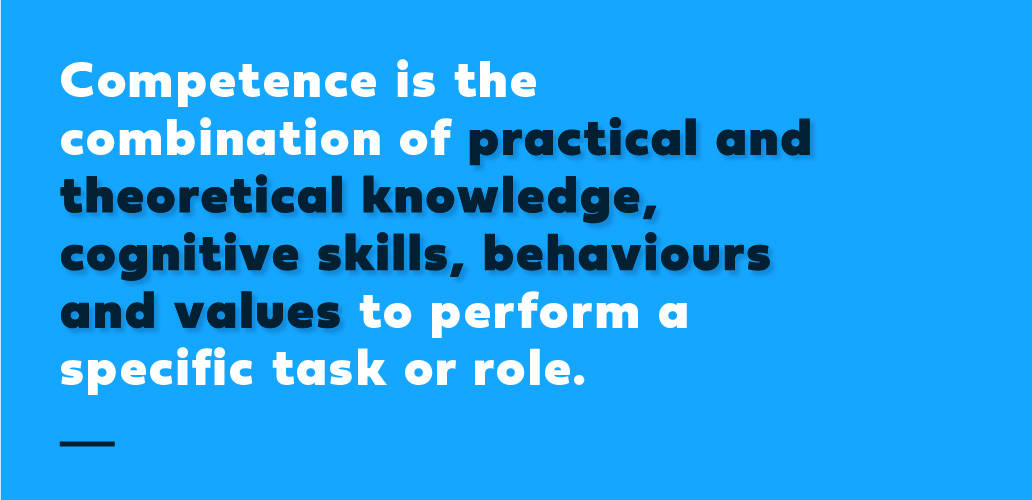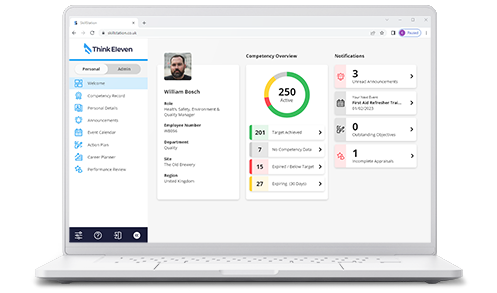More organisations are starting to measure workforce competency. In this post we'll talk about what we mean by competency and why this is a benefical approach.
Organisations are starting to measure their workforce capability not just by what training and/or skills they have, but by competencies. A competency-based approach gives an overall better understanding of workforce capability including strengths, weaknesses, and where a training, development or upskilling intervention is needed.
But what exactly is a competence?
Competence first appeared as term in an article in 1959 as concept of performance motivation. Over the following decades this definition evolved and became popularised by T.F. Gilbert (1978) and other scholars, as a concept for performance improvement.
The exact definition of competency remains diffuse, most likely because the context in which you refer to competency is changeable, the underlying key concept in relation to workforce management and performance is generally agreed upon as:
Competence is the combination of practical and theoretical knowledge, cognitive skills, behaviours and values to perform a specific task or role.
Within a typical organisation there will be a range of job roles, and within those job roles there will be a range of typical tasks. At each level - organisation, role, and task, you could use a competency-based approach to understand the skills, knowledge and behaviours needed optimise and achieve high performance. We refer to this as a competency framework, and you can find out more information about that here.
Using competency frameworks and a competency-based approach is becoming increasing popular within organisations for the holistic performance benefit it brings. This also means a lot more metrics and data to measure, understand and report upon - and as an organisation grows, so will their required competencies.
Competency – the sum of its parts
Imagine this scenario; you’re tasked with choosing the most competent operator to do work for an important client.
Mike & Harry both scored 100% on their eLearning training that pertains to the type of work you need them to do – who do you choose, Mike or Harry?
Before we commit to an answer let’s remember an important aspect of competence. Competence is the sum of its parts e.g. training, experience, practical & theoretical knowledge, soft skills – this all culminates to competency. There are various systems and methods available for measuring individual aspects of a competency, most commonly training and learning, but these systems are only ever going to give you visibility of a small piece of the overall competency picture.
A learning management system (LMS) telling us both Mike and Harry scored 100% on a course isn’t enough for us to make an informed decision.
The decision would be made easier if we knew Harry had only been with the business for 6 months, whereas Mike has 15 years of experience, is a line manager of a team, and the organisations subject matter expert who delivers practical training and assessment.
Armed with this additional information, the decision is now clear, because we now more fully understand the competencies of the two employees.
Competence is more than learning
A Learning Management System (LMS) in isolation can only communicate knowledge, and test for general understanding. It cannot test for practical application, confidence, or experience.
Competence is more than training
A training system (TMS), or training in isolation is beneficial for knowledge dissemination, but requires assessment, feedback and monitoring to close the loop.
Competence is more than assessment
Periodic refresher training and continuous feedback will prevent bad habits and enforce high standards.
How to effectively manage competency
Competency management doesn’t need to be difficult; a competency management system such as SkillStation makes managing competencies easy. This is because, uniquely, SkillStation can store and measure all the components of a competency – practical & theorical knowledge assessments, measuring behaviours / values, and the delivery of learning and training. To learn more about competency management, speak to one of our experts.


